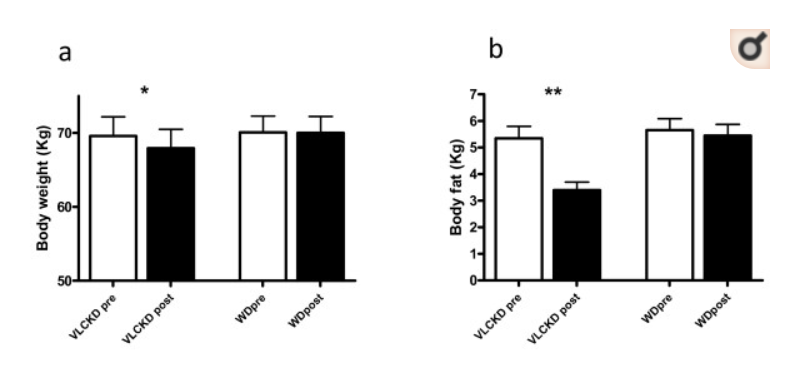In addition to nutritionists, you'll have noticed that "Low Carb mania" is increasingly spreading to gyms. Some bodybuilders, and not the least, practice this diet regularly, or at least take care to moderate their food intake. carbohydratesThis is particularly true on days when they're not training. In this chapter, we'll look at the benefits of such a diet and whether it's really applicable to athletes.
LCHF reminder
As we mentioned earlier, the Low Carb Hight Fat (LCHF) diet is a type of diet that consists of reducing carbohydrate intake and preferring a higher intake of lipids (fats) as a source of energy, while moderating its intake of proteins. This diet allows the human body to use fats as an energy source rather than carbohydrates.
According to aficionados of this diet, LCHF has several advantages, including being healthier because it's closer to our ancestral metabolism, and it's an excellent way to burn fat, since too much carbohydrate can indirectly lead to fat storage and therefore weight gain.
This diet would therefore be particularly suitable for people wishing to lose a few extra kilos, as well as for those curious to try a new type of diet that is more "ancestral" and less stressful on the metabolism. The question remains as regards sportsmen and women, particularly body-builders on the one hand, and endurance sports enthusiasts on the other.
Fitness and bodybuilding: is Low Carb right for you?
Dry and low-carb
According to the experts in this field, LCHF helps athletes to lose fat more easily, and can also be used as a support during a lean period. This seems logical, since with a diet too rich in sugar, your pancreas will produce insulin to regulate the excessive level of glucose in the blood. And to burn this sugar, insulin will produce fat, which will be stored. When carbohydrate intake falls, insulin levels drop again, and our body draws on existing fat to make energy, leading to a de facto slimming of the body.
This content is part of the guide Blooness, the guide to the ideal human diet, the summary of which you can find here 🌱🥑
A low-carb diet will therefore enable our body to produce less insulin and less fat, and thus draw its energy directly from reserves. A phenomenon which, for bodybuilders, is conducive to leaner, more defined muscles.
Low-carb and muscle gain
If the Low-Carb High Fat is a fat-loss diet, but is it effective for building muscle? It's a debate that continues to divide bodybuilding circles. Indeed, some believe that you can't run two hares at once, and that without carbohydrate intake, you don't generate the necessary insulin levels to promote the creation of muscle tissue. Conversely, others point to their own experience, which seems to confirm that LCHF is not at all incompatible with muscle volume gain.
French-speaking subscribers will receive the newsletter in French, and all others will receive an English version.
To answer this question, let's take a look at what science tells us.
An initial study dating from 2012 is without appeal:

The experiment conducted concluded that "despite the concerns of coaches and doctors about the possible adverse effects of low-carbohydrate diets on sports performance, and the well-known importance of carbohydrates, there are no data showing a decrease in strength after a ketogenic diet." The study adds that "the use of a ketogenic diet over 30 days can reduce body weight and body fat without adversely affecting muscle performance in elite athletes", in this case gymnasts.
Low Carb / Ketogenic and endurance sports
If an LCHF diet doesn't lead to significant muscle loss, is it still suitable for an endurance event, which requires a lot of energy over time? According to several scientific studies, for example this oneThe LCHF diet would not affect sporting performance in endurance events, as keto-adapted athletes would have given their bodies time to "switch" fuels, replacing carbohydrates with fats as an energy source.
Another study from 2018 also claims that a low-carb ketogenic diet reduces body mass without compromising the performance of Olympic weightlifters.
However, other medical sources indicate that LCHF is not the most suitable food for athletes taking part in high-intensity ultra-endurance events. For example, a 2017 study concludes that a low-carbohydrate, high-fat diet reduces performance (-1.6%) in race walking, compared with a high-carbohydrate diet (+5.3%), for a 10km endurance run.
If we combine the results of all the scientific studies carried out on this subject, the following trends would seem to emerge:
- The ketogenic diet may significantly impair performance in high-intensity and endurance sports.
- On the other hand, it does not seem to induce any difference in performance for low- to medium-intensity sports, as well as for strength and body-building events.
Conclusion about sport and a low-carb diet
If we bring together the various scientific data available on the Internet, we can conclude that a ketogenic diet in the strict sense of the term, i.e. with less than 50 grams / day, is not really advisable, unless accompanied by health professionals.
On the other hand, its softer version, the low-carb diet, can be adopted in parallel with sport, especially if frequent carbohydrate rebounds are practiced.
Secondly, as each case is unique, the low-carb diet is particularly well suited to people who "fatten up" a lot despite their efforts during the lean period. Such a diet will enable them to avoid the cravings associated with a greedy diet, and to encourage their bodies to burn fat, while still benefiting from a reasonable intake of carbohydrates for their nutrients and energy. minerals protectors.
It's all about adapting your diet, and not depriving yourself of the "right" carbohydrates, if you want to benefit from the energy needed for sporting effort and to develop your muscle tissue.
Finally, regardless of this type of diet, standard nutritional recommendations for bodybuilders are based on a carbohydrate intake of around 3 to 6 grams of carbohydrate per kilo of body weight, which works out at between 210 and 420g per day for a 70-kilo athlete.
Yet Western eating habits lead both men and women to consume as much, if not more, carbohydrate per day, without necessarily practicing sports at the same timeor at least not on a daily basis. In other words, most sedentary people consume as much, if not more, carbohydrate every day than regular athletes.
This leads us to conclude that a low-carb diet is ultimately "low" only in comparison with our current eating habits, which are heavily oriented towards the consumption of carbohydrates and sugars, whether slow or fast.
Are there athletes who follow the LCHF and ketogenic diets?
The low-carb diet has its followers in the world of sport and bodybuilding. Some are low-carb only, while others - rarer still - are advocates of the strict ketogenic diet.
There are also those who do it only over a given period, once a year, to reset their insulin sensitivity, while others practice it before a competition to dry out before a carbohydrate rebound on the eve of an event or photo shoot.
Finally, some bodybuilders moderate their carbohydrates every week, then do what they call a "carb refill", i.e. one or more relatively higher-carb meals over one or two days, to replenish their muscles with glycogen. This practice is sometimes coupled with the "cheat meal", which consists in "indulging" yourself by eating without paying attention to the distribution of your food. macronutrients or its caloric intake.
It's up to you to find your "formula".
Next chapter: Ketogenic diet and cancer: Dr Schwartz's protocol
Previous chapter: What are the electrolyte and mineral intakes on the ketogenic or low-carb high-fat diet?



